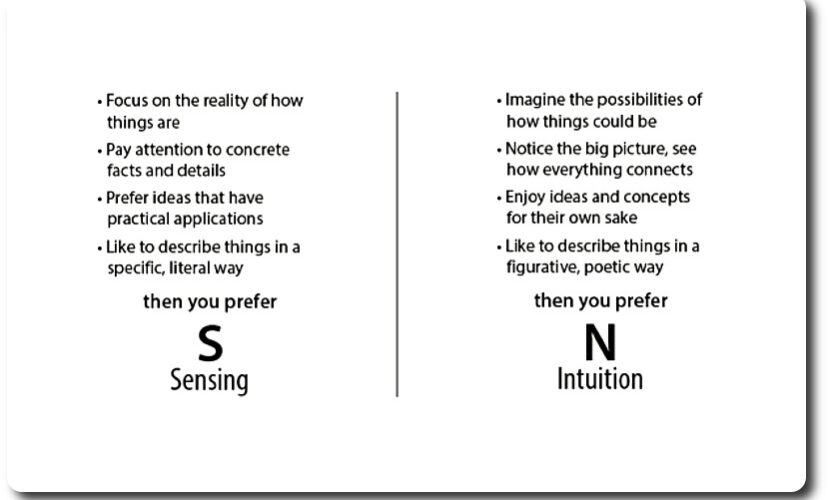News & Events
Sensing vs. Intuition | Dreaming for the Non-Dreamer
- March 9, 2015
- Posted by: Mike Rucker
- Category: Coaching Tools

Some people’s personality types are not wired for picturing a hypothetical future that is disconnected from their present state. The people we think of as “dreamers” (who tend to be full of intuition and score a “N” on the Myers-Briggs Type Indicator assessment) live in the world of ideas, and can create an ideal future out of little prior experience and/or reference. But those who are more sensing (who have/would score a “S” on the Myers-Briggs assessment; about half the population) are known as “pragmatic dreamers”. These people (maybe you) are more comfortable staying in the present, and tend to envision their future as something that can be practically and pragmatically extrapolated from past and present experiences. Pragmatic dreamers are often frustrated by traditional brainstorming exercises. One of the keys to helping practical people dream is to identify what they have loved doing in the past (or what they are doing now that they love), and help them envision ways they can do more of that in the future. This provides the practical connection to reality that will help them explore and dream effectively.
If you believe you are a pragmatic dreamer (or are working with one), here are some questions that could potentially help you dream a little bit more:
- “What have you done in your past that has been truly satisfying? How can you do more of that?”
- “What do you like/dislike about your current reality? What kind of reality would you like if you could maximize your likes and minimize your dislikes?
- In what kind of situations (or with which people) have you been most effective or you feel you have had the greatest impact? How could you reorient your life to spend more time in this reality?
If you are looking for further motivation, the video below tells the story of Jeremy Forbes who did something very special by simply asking himself, “what can I accomplish today?” Please enjoy.
(credit: the inspiration for this post, as well as the question examples above, came from the book Coaching Questions: A Coach’s Guide to Powerful Asking Skills.)

